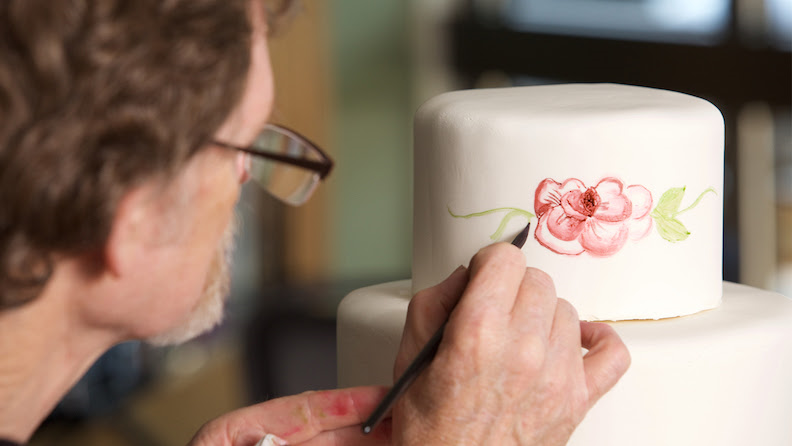
“Two men filed a complaint with the state of Colorado after they asked cake artist Jack Phillips to design a wedding cake to celebrate their same-sex ceremony. In an exchange lasting about 30 seconds, Phillips politely declined, explaining that he would gladly make them any other type of baked item they wanted, but that he could not design a cake promoting a same-sex ceremony because of his faith.”
The case has now reached the Supreme Court, which has received at least 45 friend-of-the-court briefs in support of the freedom of Mr. Phillips to decline to create custom artistic expression that celebrates events in conflict with his faith. The briefs include support from the U.S. Department of Justice, 479 creative professionals, 20 states, 86 members of Congress, and a variety of legal experts, civil rights advocates, and religious groups.
Alliance Defending Freedom attorneys representing Jack Phillips and his family business, Masterpiece Cakeshop, filed their opening brief in the case, which the U.S. Supreme Court agreed to hear after the Colorado Court of Appeals ruled that a state law could force him to create custom artistic expression contrary to his faith.
“As the numerous briefs filed in this case affirm, artists and other expressive professionals should be able to peacefully live and work according to their beliefs without fear of punishment by the government,” said ADF Senior Counsel Kristen Waggoner. “We hope the U.S. Supreme Court will consider the arguments in these briefs and declare that the government cannot force Jack to surrender his freedom in order to run his family business. Regardless of one’s view on marriage, all Americans should support Jack: To have First Amendment freedoms for ourselves, we must respect those same freedoms for people with whom we disagree on important issues.”
The Colorado Supreme Court declined to take the case after the state’s Court of Appeals affirmed a Colorado Civil Rights Commission decision from May 2014. That decision ordered Phillips and his employees to design custom wedding cakes that celebrate same-sex marriages if the shop designs wedding cakes for opposite-sex marriages. It also required Phillips to re-educate his staff, most of whom are his family members—essentially telling them that he was wrong to operate his business according to his faith. He must also report to the government for two years, describing all cakes that he declines to create and the reasons why. As a result of the ruling, Phillips has lost an estimated 40 percent of his business.
The U.S. Department of Justice filed a brief recognizing that “a custom wedding cake is a form of expression…. It is an artistic creation that is both subjectively intended and objectively perceived as a celebratory symbol of a marriage.”
The states, in their brief, argue that governments “may not use their police power to truncate the First Amendment by compelling a person to create a piece of artwork—particularly one that violates the artist’s conscience.” They add that “this case happens to arise in the context of expression regarding same-sex marriage. But the First Amendment principles that control here transcend, and will long outlast, the Nation’s current dialogue about same-sex marriage.”
The nearly 500 creative professionals similarly assert, “Artistic speech, whether expressed through painting a picture, taking a photograph, or designing a cake, is constitutionally protected and should be treated as such. The expression should neither be silenced nor coerced. Though the concern is currently most pressing in the same-sex wedding context, it is not so limited. Creative professionals of all stripes stand to suffer from undue compulsion, depending on how this Court rules here.”
Religious persecution does not start with worship, but it ends there. The enemy cannot gain a footing in worship issues, if other precedents against religious liberty aren’t first established. Human Rights Commissions, the courts, legislative and other controlling bodies are already trying to bind the consciences of men and are bringing oppressive power to bear against them, thus setting precedence for later violations of religious freedom. If a state human rights commission can force a cake designer to conduct his business against his conscience, what is to stop state agencies from forcing other anti-conscience requirements on a multiplicity of issues, including worship? Will the angels hold back the winds of strife by the Supreme Court?
“A time is coming when the law of God is, in a special sense, to be made void in our land. The rulers of our nation will, by legislative enactments, enforce the Sunday law… When our nation, in its legislative councils, shall enact laws to bind the consciences of men in regard to their religious privileges, enforcing Sunday observance, and bringing oppressive power to bear against those who keep the seventh-day Sabbath, the law of God will, to all intents and purposes, be made void in our land; and national apostasy will be followed by national ruin.” Review and Herald, December 18, 1888.
Source References
